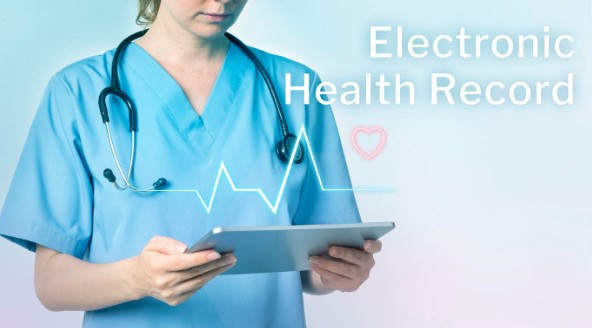Electronic Health Records (EHRs) have revolutionized the healthcare industry. These digital versions of patients’ paper charts have not only improved data management but have also significantly impacted patient care. However, the true potential of EHRs is realized through creative solutions that go beyond mere digitalization. This article explores how these advancements improve patient outcomes in meaningful ways.
Enhanced Patient Access to Records
One of the most significant advancements in EHR is granting patients direct access to their medical records. This transparency empowers patients to actively participate in their care, leading to better health outcomes. Patients are more likely to follow treatment plans, remember appointments, and manage chronic conditions when they have easy access to their health information.
Innovative Software Solutions
The development of specialized software for EHR has further improved the ability of healthcare providers to manage workflows, patient outcomes, and scheduling. This kind of software is particularly beneficial for behavioral health organizations, helping them to organize their operations and provide better patient care.
Telehealth Integration
The integration of telehealth services within EHR platforms has been a game-changer, especially in the wake of the COVID-19 pandemic. Telehealth allows for remote consultations, making healthcare more accessible to patients who may have mobility issues or live in remote areas. By incorporating telehealth, EHRs help maintain continuity of care, reduce hospital visits, and lower overall healthcare costs.
Advanced-Data Analytics
EHR systems now leverage advanced data analytics to provide healthcare professionals with deeper insights. These tools can identify patterns and predict potential health issues before they become critical. For instance, predictive analytics can flag early signs of diabetes or heart disease, allowing for timely interventions and personalized treatment plans.
Patient Safety and Compliance
EHR solutions enhance patient safety by implementing checks and balances that reduce the likelihood of medication errors and other preventable mistakes. For instance, EHRs can alert physicians to potential drug interactions, allergies, or incorrect dosages. Moreover, automated reminders ensure that patients adhere to their treatment routines, which is important for managing chronic conditions effectively.
Improved Coordination of Care
EHRs facilitate seamless sharing of information among specialists, primary care doctors, and other healthcare providers. This enhanced communication ensures that everyone involved in a patient’s care is on the same page, reducing the risk of medical errors, duplicative tests, and conflicting treatments. Ultimately, this leads to more efficient and effective patient care.
Interoperability and Standardization
Addressing interoperability and standardization issues in EHR systems proves vital for a cohesive healthcare system. Ensuring that various EHR systems can communicate seamlessly with one another eliminates data silos, leading to more comprehensive patient records. This interoperability fosters a more collaborative environment among healthcare providers and ensures that patients receive consistent and informed care regardless of where they seek treatment.
Read also: The Impact of Syndicated Investments Software on Financial Planning
Personalized Medicine
With the advent of genomic data being integrated into EHRs, healthcare is moving towards a more personalized approach. Doctors can now consider a patient’s genetic makeup when prescribing treatments, which increases the likelihood of successful outcomes. Personalized medicine also minimizes the trial-and-error approach, reducing the time and costs associated with finding the right treatment.
Training and Support for Healthcare Providers
For EHR solutions to be truly effective, adequate training and support for healthcare providers are vital. Continuous education and training programs ensure that medical professionals can utilize these technologies to their fullest potential. By investing in the proper training, healthcare facilities can maximize their EHR systems’ benefits, ensuring that providers are well-equipped to offer the highest quality of patient care.
Machine Learning and AI Integration
Beyond data analytics, the integration of machine learning and artificial intelligence (AI) into EHR systems is setting new benchmarks in predictive healthcare. These technologies can analyze vast amounts of patient data to provide precise analytics and recommendations. AI algorithms can predict potential health crises, allowing for preemptive measures that can prevent hospitalizations or severe health events, thereby improving overall patient outcomes.
Final Thoughts
The evolution of EHR systems from simple digital records to sophisticated healthcare management tools is unlocking new opportunities for improving patient outcomes. By enhancing patient access, leveraging data analytics, enabling better coordination of care, integrating telehealth, supporting personalized medicine, and ensuring patient safety, new EHR solutions are transforming healthcare. As technology continues to advance, the potential for even greater improvements in patient care is limitless.







